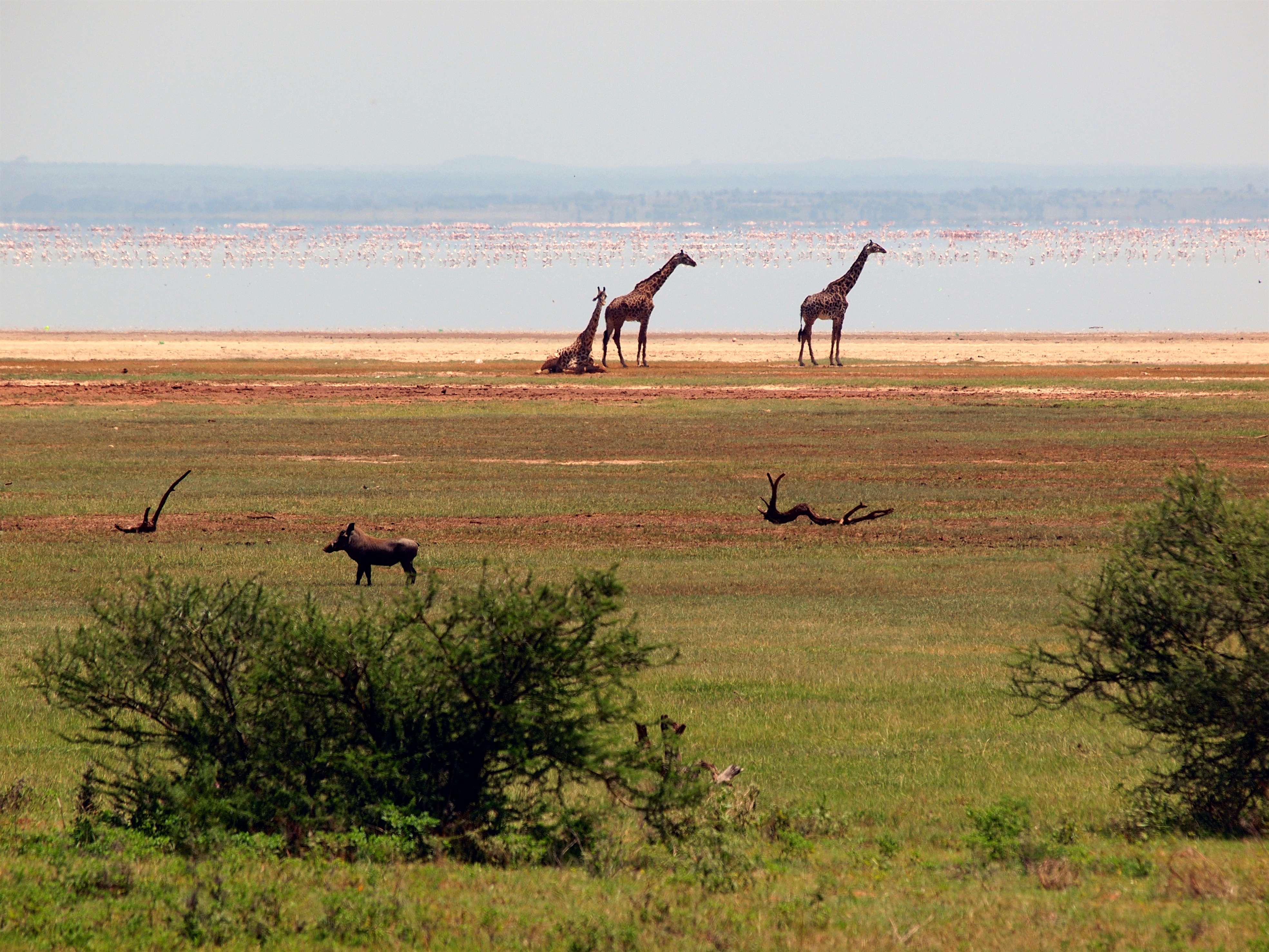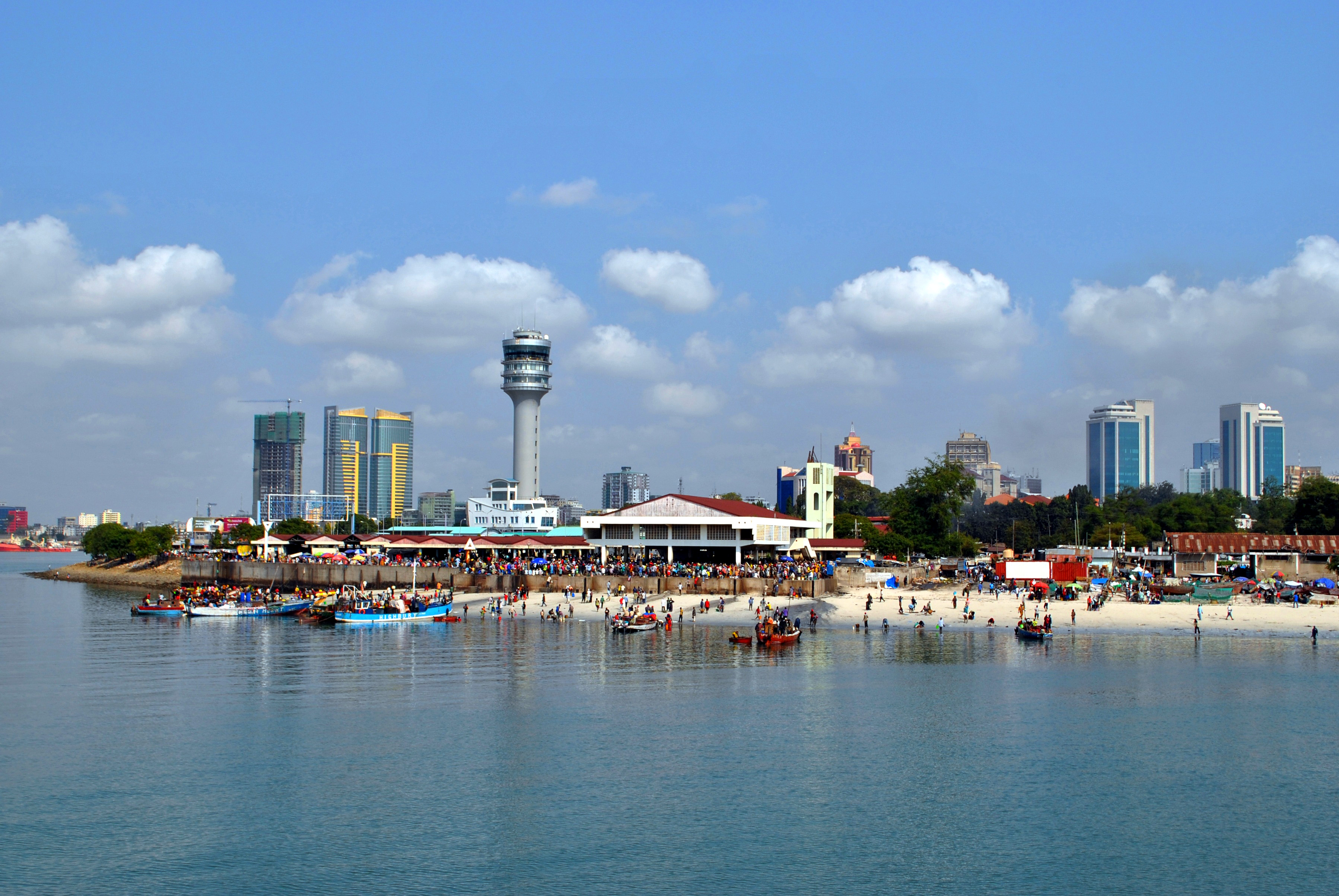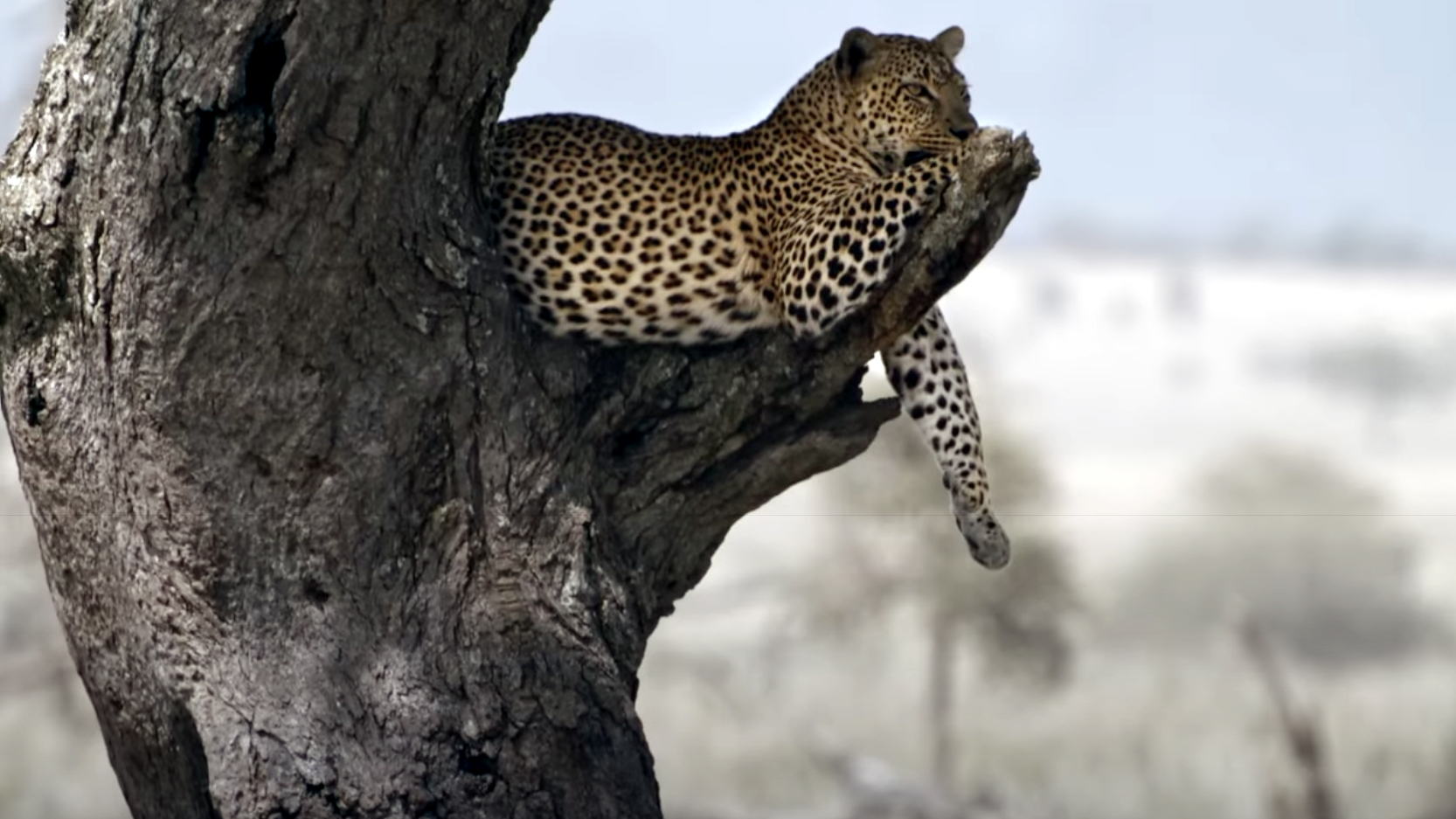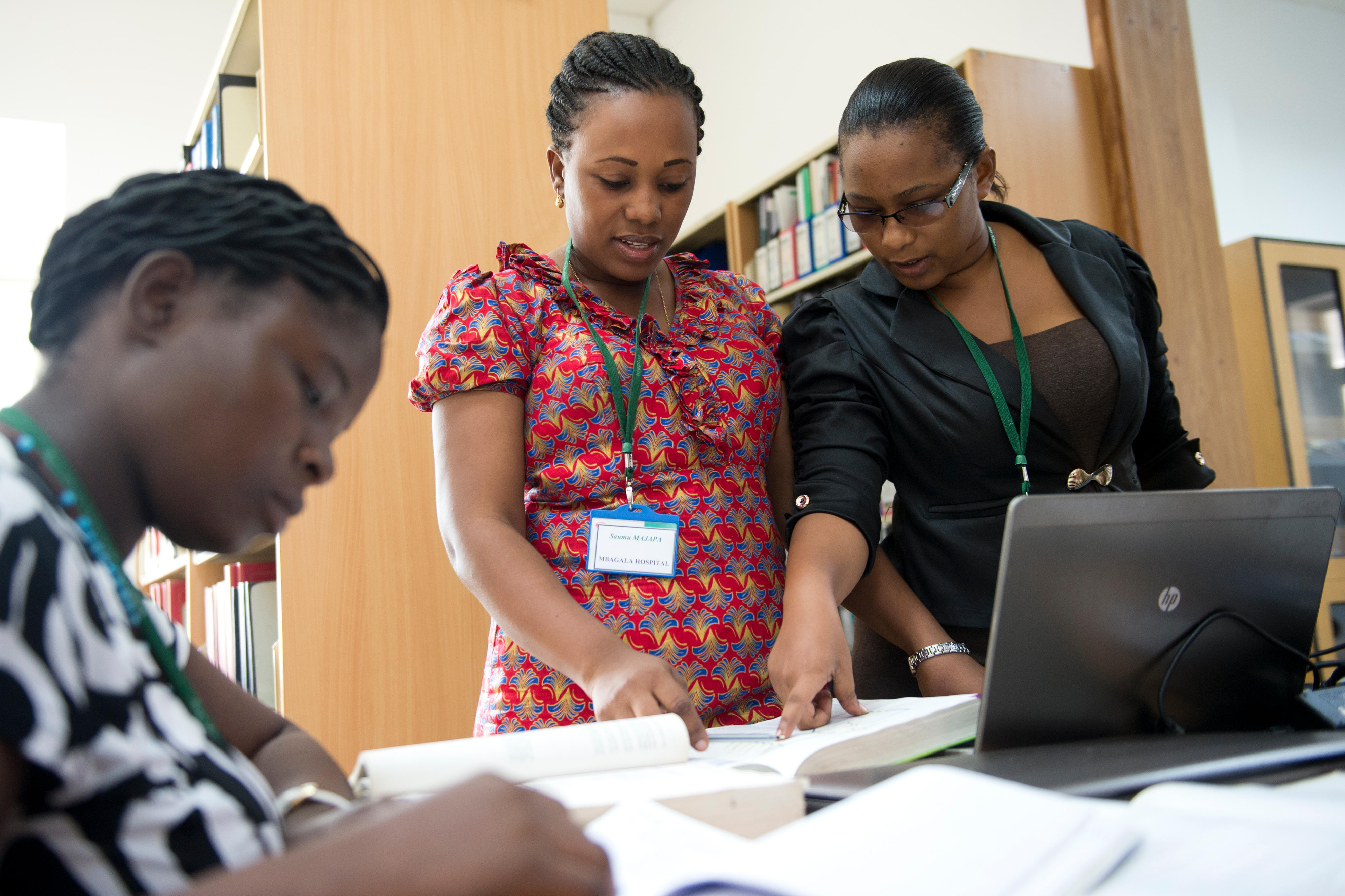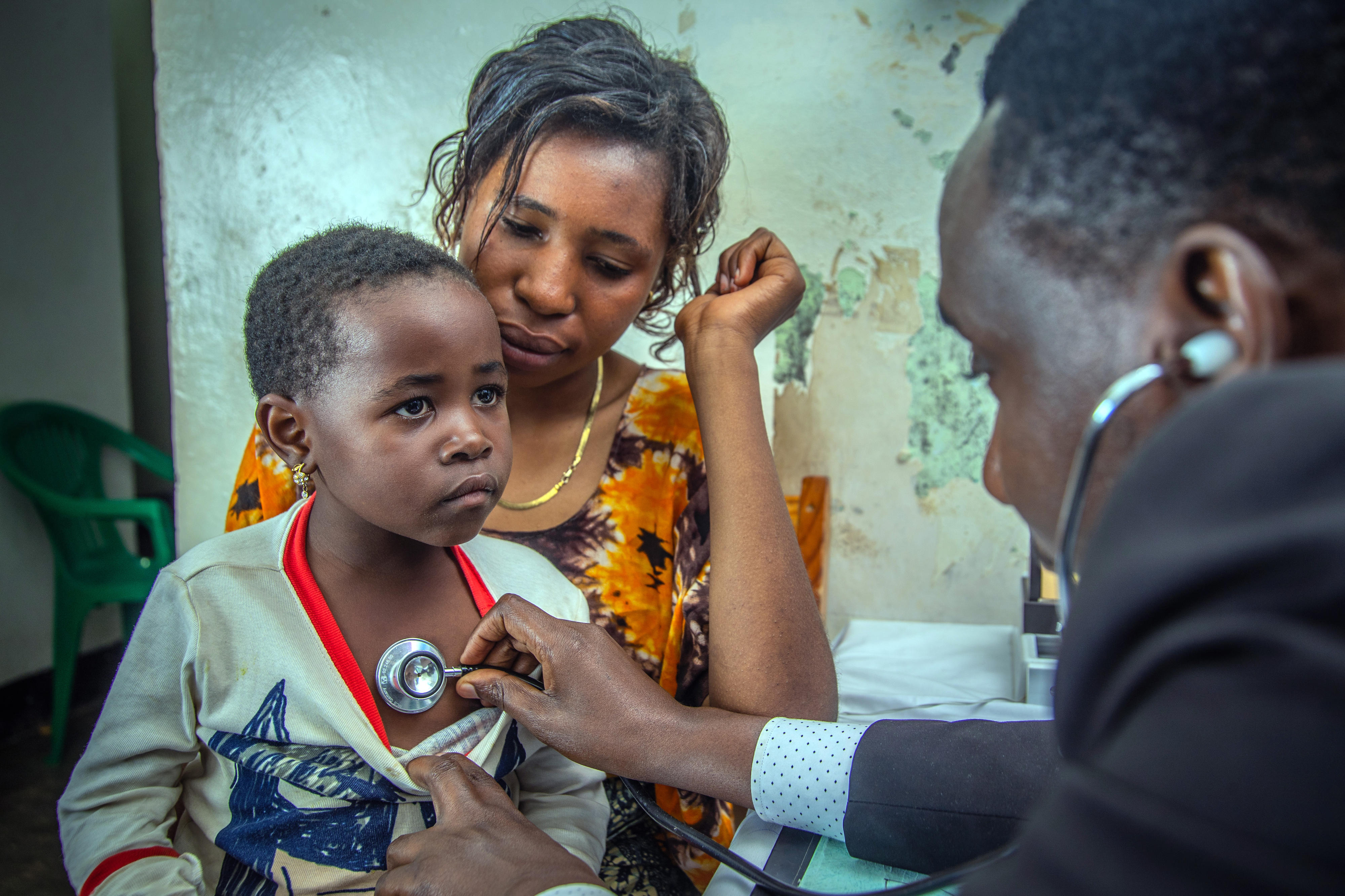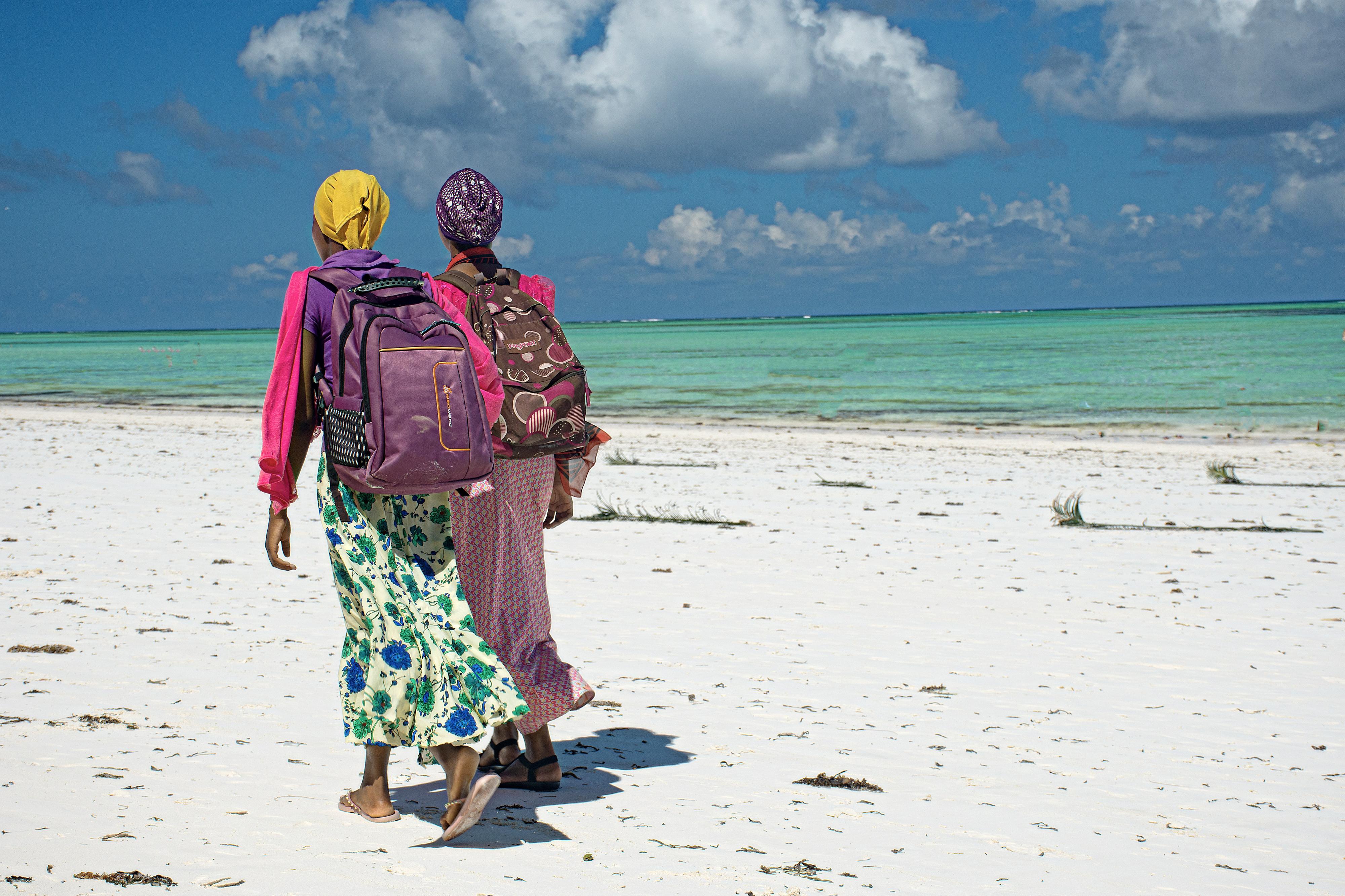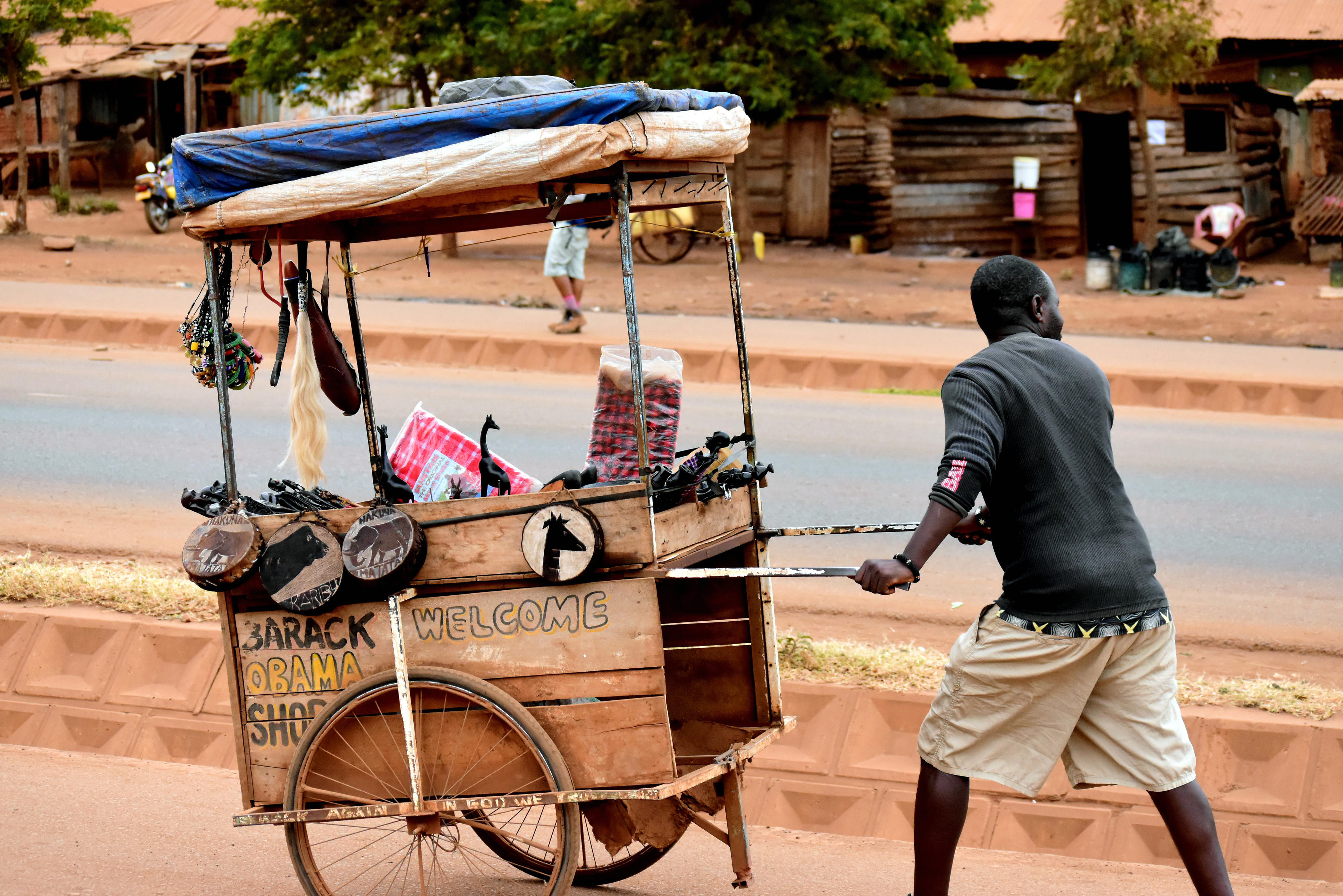Giraffes in a national park in Tanzania
Copyright© John Mackenzie Burke, via Wikimedia, CC BY-SA 4.0
Tanzania
Tanzania is one of the strongest economies in sub-Saharan Africa. In the last five years, the country recorded continuous gross domestic product growth – from 4.9 per cent in 2022 to a predicted 5.7 per cent in 2025. Even during the COVID-19 pandemic and global inflation, Tanzania’s economy remained robust.
Positive economic development can be seen, but so far it has not proved possible to achieve any tangible or sustained reduction in poverty. One reason for this is very high population growth. Between 2015 and 2025, Tanzania’s population grew by almost 40 per cent.
The rapid economic growth has so far not created enough jobs to keep pace with the population growth. At the same time, it is putting pressure on the country’s infrastructure. On the current Human Development Index (HDI) Tanzania ranks 165th out of 191 countries.
The violent crackdown on protests in the context of the presidential elections and a shutdown lasting several days racked the country in October 2025. The BMZ is following closely the impact this has on social cohesion in the country and on the economy.
Zanzibar
Zanzibar is an archipelago off the African east coast and a semi-autonomous part of Tanzania. The situation in Zanzibar is marked by poverty, political tensions, independence movements and sluggish economic growth. At the elections in October 2025, Hussein Ali Mwinyi was re-elected as Zanzibar’s president. He formed a government of national unity together with Zanzibar’s strongest opposition party and is pursuing a policy of balance and conciliation.
German development cooperation with Tanzania
Tanzania and Germany have been engaged in development cooperation for many decades. This cooperation is aimed at achieving the long-term goal of facilitating a global transition that is in line with the 2030 Agenda for Sustainable Development – enabling all people to lead a life in dignity and security in a healthy environment.
At government negotiations in March 2024, the Federal Ministry for Economic Cooperation and Development (BMZ) made a commitment of 70 million euros to Tanzania. This comprises 40 million euros in Financial Cooperation funding and 30 million euros in Technical Cooperation funding.
The core areas of cooperation include:
- Conserving nature and natural resources, protecting life on Earth
Areas of intervention: biodiversity, water - Peaceful and inclusive societies
Area of intervention: Good governance - Health, social protection and population dynamics
Areas of intervention: Social protection, population policy; sexual and reproductive health and rights
The BMZ is putting an emphasis on feminist development policy in all these areas, for example in its cooperation on efforts to fight violence against women. In addition to bilateral cooperation, Germany also engages in transnational projects, for instance in the areas of anti-poaching, marine conservation, integrated water resource management and employment promotion.
Cooperation with Zanzibar
Cooperation with Zanzibar was put on hold following controversial elections in 2015. Development cooperation was resumed during new government negotiations in 2021. The German development ministry is financing, for example, climate-smart water supply on the island group and promoting people’s participation in resource management. In addition, projects are being implemented in Zanzibar to promote sustainable tourism.
SDG trends for Tanzania
- On track or maintaining SDG achievement
- Moderately improving
- Stagnating
- Decreasing
- Trend information unavailable
